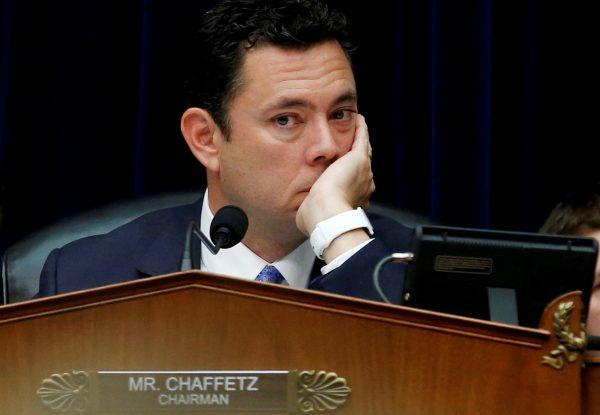Utah’s motion seeks direct hearing before the nation’s highest court to determine if federal agencies can ‘indefinitely hold public lands.’
The United States Department of Justice (DOJ) is urging the U.S. Supreme Court to reject Utah’s motion for it to hear a lawsuit challenging the federal government’s “continued possession of unappropriated public lands.”
While the court has not agreed to hear Utah’s case, the state’s claim that the U.S. government, which manages more than a quarter of the nation’s land mass, does not have a constitutional right to hold land “indefinitely” underscores decades of tension between locals and federal land-use policies across the west.
Utah’s motion seeks to directly file a “bill of complaint” to initiate a lawsuit before the highest court without a preceding string of lower court appellate rulings.
Utah’s motion “faces significant jurisdictional and procedural barriers, and lacks merit,” they said.
The motion maintains that 18.5 million of the Land Management Bureau’s 22.8 million acres in Utah lack land-use designations, and are thus “unappropriated … without any clear Congressional designation” and should be turned over to state management.
Utah argues that when it became a state in 1896, the U.S. government had a “duty to dispose” of “unappropriated lands” in the state “not reserved for another purpose,” such as a national park, national forest, national monument, or national wildlife refuge.
Reyes said that the FLPMA is unconstitutional and that with its adoption, federal agencies “stopped disposing of public lands as per their constitutional mandate.” He said the Constitution “never intended a federal agency to hold onto so much land in any state.”
“‘Unappropriated lands’ are not being used in the exercise of enumerated powers,” the brief penned by Idaho Attorney General Raúl Labrador states.
Roughly 80 percent of the Land Management Bureau’s land in Idaho is “unappropriated land,” he said, meaning “more than 9 million acres are not reserved for any designated purpose.”

A bison grazes on federal public land on Antelope Island, Utah, on the Great Salt Lake, about 50 miles north of Salt Lake City. Rick Bowmer/AP Photo
Fast-Track for Decades-Old Debate
Utah is seeking a fast track to get before the Supreme Court by invoking original jurisdiction, which allows states to directly petition the Court to resolve an issue between a state and the federal government. There is no requirement, or timeline, for a decision.
In its response, the DOJ argued that Utah’s characterization of the case as “only a purely legal issue”—as a reason for it to skip lower courts—is incorrect.
Utah is making material claims by alleging federal agencies are “simply holding” land and defaulting on its “enumerated powers,” the DOJ says, adding there are also unresolved “factual disputes.”
“Utah has not established standing here,” the DOJ said, noting the state’s argument apparently is that “the Constitution requires Congress to convey land to it to … tax and regulate.”
The DOJ maintains the FLPMA is constitutional. Congress adopted it with language stating that the disposal of public lands must “serve national interest,” the brief said, noting Utah makes no such “national interest” claim.
The DOJ’s brief is the 12th filed on the motion. The other 11 support Utah.
Wyoming state Rep. John Bear (R-Gillette) said 48 percent of his state is administered by federal agencies, leaving local economies at the mercy of Washington’s whims.
“We’ve seen in the last six months, the Biden administration take away our ability to use that land to the best of its ability, to the benefit of local economies,” he told The Epoch Times in June.
It’s an existential battle, Bear said.
In 2024 alone, Curtis sponsored at least three bills exerting local control over federal public lands, including an approved bill that permits Utah to exchange 150,000 acres of state land within Bears Ears National Monument for 150,000 acres of land controlled by the Land Management Bureau elsewhere in the state.
Utah state Sen. Mike Kennedy, a medical doctor who will assume Curtis’s House seat in January after winning his race in the Nov. 5 election, told The Epoch Times that pushing for state control of federal lands will allow for greater flexibility in energy development.
“Utah coal is some of the cleanest in the world, and we’ve got vast supplies of it. And we’re shutting down plants using coal and natural gas, which is shocking. Energy independence is fundamental,” he said.
2017 Redux?

House Oversight and Government Reform Committee Chairman Jason Chaffetz (R-Utah) during a committee hearing on Capitol Hill in Washington on Sep. 13, 2016. Jonathan Ernst/Reuters
ALEC, in particular, has been a force since the 1990s in agitating for state control of federal lands as part of a broader “divest-and-transfer” movement.
Among them: The Theodore Roosevelt Conservation Partnership, Rocky Mountain Elk Foundation, the Sportsmen’s Alliance, Outdoor Industry Association, Outdoor Alliance, National Shooting Sports Foundation, Backcountry Hunters and Anglers—of which Donald Trump Jr. is a member—Trout Unlimited, Quail Forever, Sitka, Old Milwaukee, the National Wildlife Foundation, Kimber, Pheasants Forever, National Wild Turkey Federation, Remington, Powderhook, the Wilderness Society, Center for Western Priorities, National Bowhunters Association, and Sierra Club, the nation’s largest grassroots conservation organization with more than 2 million members.
Original News Source Link – Epoch Times
Running For Office? Conservative Campaign Consulting – Election Day Strategies!


